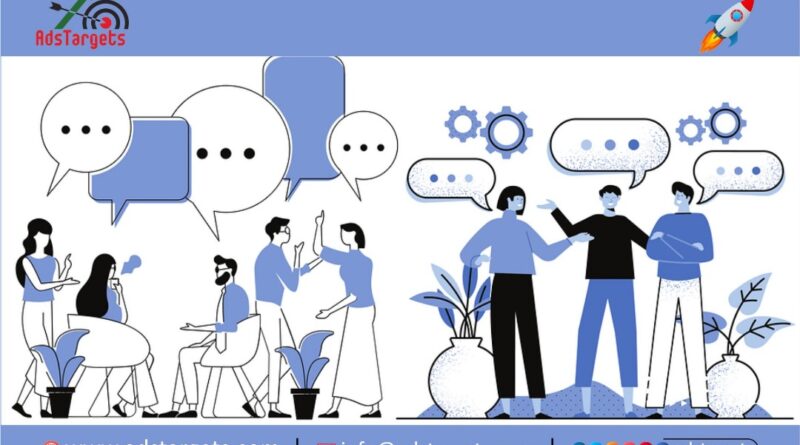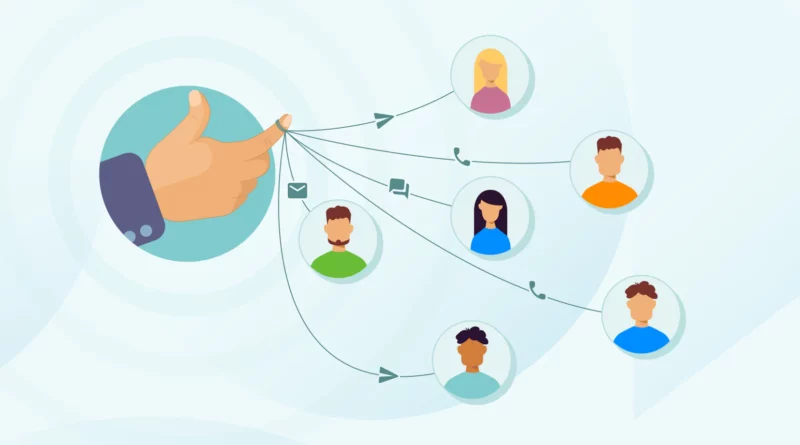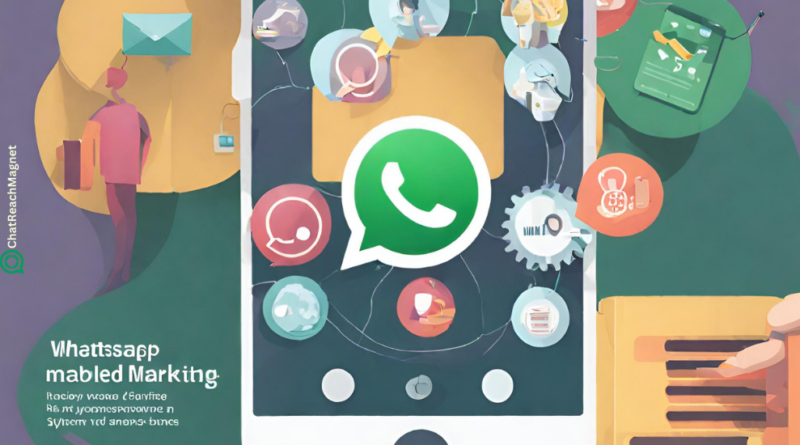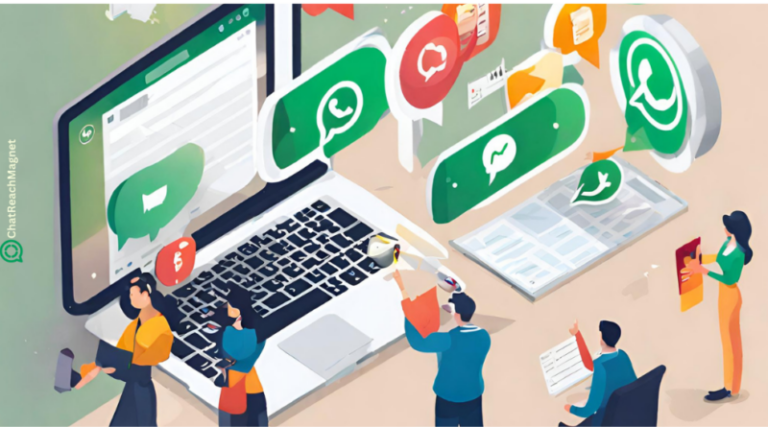The Power of WhatsApp Marketing: Connecting with Your Audience in 2024
The Power of WhatsApp Marketing is only effective when you engage deeply with your audience. High engagement makes your campaigns memorable and helps build an emotional connection with your customers.
Of course, you want to remain on top of your competitors and boost your sales. But to achieve that, you need to improve your communication and attract customers to your business.
How can you do this? By using the powerful features of WhatsApp. Many people don’t realise that WhatsApp can significantly boost their sales. WhatsApp has emerged as a powerful tool for marketers looking to engage with their customers more personally and directly.
With over 2 billion users worldwide, WhatsApp offers an unparalleled opportunity for businesses to reach a vast and diverse audience.
Simply adding your WhatsApp number to your website can increase sales by 27%. Sounds interesting, right? Stay with us as we explore how WhatsApp can effectively market your business.
What is WhatsApp Marketing?
WhatsApp marketing involves leveraging the features of the WhatsApp platform to communicate with potential and existing customers.
It is a form of direct messaging that allows businesses to send promotional messages, updates, and customer support through a platform that users are already familiar with and frequently use.
Unlike traditional marketing channels, WhatsApp marketing is highly personal and immediate, making it an effective tool for fostering deeper customer relationships.
Why WhatsApp in Marketing?
WhatsApp’s rise to prominence in the marketing world can be attributed to several factors:
#1. Global Reach: With over 2 billion users globally, WhatsApp provides access to a wide audience, cutting across different demographics and geographical locations.
#2. High Engagement Rates: Messages sent through WhatsApp have significantly higher open and response rates than emails or social media posts.
#3. Personal Connection: WhatsApp is primarily a personal messaging app, which means messages from businesses can feel more intimate and direct.
#4. Multi-Media Capability: WhatsApp supports text, images, videos, documents, and voice messages, allowing businesses to deliver rich content.
#5. Cost-Effective: Compared to traditional advertising methods, WhatsApp marketing is relatively inexpensive, making it accessible for small and medium-sized enterprises (SMEs).

What is the Power of WhatsApp Marketing?
WhatsApp marketing offers numerous advantages for businesses of all sizes, making it a powerful tool to reach and engage with customers. Here’s an in-depth look at the key benefits:
#1. Direct Communication
WhatsApp allows businesses to communicate directly with their customers. This direct line of communication can be used for various purposes, such as sending order confirmations, shipping notifications, or personalised offers.
The immediacy of WhatsApp means that messages are often read within minutes, providing businesses with a quick way to reach their audience.
This promptness ensures that important information, like a flash sale or a service update, reaches customers almost instantly.
Additionally, this direct communication helps businesses keep customers informed and engaged, reducing the likelihood of missed messages or delayed responses.

#2. Enhanced Customer Engagement
Engagement on WhatsApp tends to be higher than on other platforms. Customers are more likely to open and respond to messages received on WhatsApp compared to emails or social media messages.
This high engagement rate can lead to better customer satisfaction and loyalty. For instance, a promotional message sent through WhatsApp is more likely to be noticed and acted upon than an email that might end up in a spam folder.
Engaged customers are also more likely to interact with the brand, provide feedback, and share their positive experiences with others, further enhancing the brand’s reputation and reach.
#3. Personalisation
WhatsApp marketing allows for a high degree of personalisation. Businesses can address customers by their first names, design messages based on previous interactions, and even use multimedia to create more engaging and relevant content.
Personalised communication helps in building stronger relationships and can lead to increased customer retention. For example, a business can send personalised birthday greetings along with a special discount, making the customer feel valued and appreciated.
This kind of designed communication not only enhances the customer experience but also increases the likelihood of repeat business.
#4. Improved Customer Service
WhatsApp can be an effective tool for customer service. Businesses can provide real-time support, answer queries, and resolve issues quickly and efficiently.
The use of voice messages and videos can also enhance the customer support experience, making it more comprehensive and effective.
For instance, a customer facing an issue with a product can send a quick message and receive instant assistance, rather than waiting on hold for a customer service representative.
This real-time interaction can significantly improve customer satisfaction and loyalty, as issues are resolved swiftly and efficiently.
#5. Cost-Effective Marketing
WhatsApp marketing is a cost-effective solution, especially for SMEs with limited marketing budgets. There are no costs for sending messages, and businesses can reach a large audience without significant expenditure.
Additionally, the high engagement rates mean that businesses can achieve better returns on their marketing efforts.
For example, a small business can send out promotional messages or updates to its entire customer base without incurring any additional costs, unlike traditional advertising methods such as print or television ads.
This cost-effectiveness makes WhatsApp an attractive option for businesses looking to maximise their marketing budget while achieving significant outreach and engagement.
#6. Multi-Media Capability
WhatsApp supports various forms of multimedia, including images, videos, and voice messages. This capability allows businesses to create rich and engaging content that can capture the attention of their audience more effectively than plain text messages.
For example, a clothing store can send a video showcasing a new collection or a restaurant can share images of their latest dishes, enticing customers visually.

#7. Group Messaging
WhatsApp allows businesses to create groups to send messages to multiple customers at once. This feature is particularly useful for businesses that want to create a community around their brand.
For instance, a fitness trainer can create a group for their clients to share workout tips, motivation, and updates, fostering a sense of community and engagement.
#8. Feedback and Surveys
WhatsApp can also be used to gather customer feedback and conduct surveys. Businesses can send out quick surveys or ask for feedback on their products and services.
This direct feedback mechanism helps businesses understand their customers’ needs and preferences better, allowing them to improve their offerings accordingly.
What are the Strategies for Effective WhatsApp Marketing?
To harness the full potential of WhatsApp marketing, businesses need to adopt effective strategies. Here are some key strategies to consider:
#1. Building a Subscriber List
Before you can start marketing on WhatsApp, you need a list of subscribers who have opted in to receive messages from you. Here are some ways to build that list:
Promoting WhatsApp on Other Channels: Encourage your existing customers and social media followers to join your WhatsApp list by promoting it on your website, email newsletters, and social media profiles.
For example, you can include a call-to-action on your website asking visitors to join your WhatsApp list for exclusive updates and offers.
Offering Incentives: Provide incentives such as exclusive discounts or early access to new products for customers who subscribe to your WhatsApp updates. This can be a powerful motivator for customers to opt in.
Using WhatsApp Widgets: Add WhatsApp chat widgets to your website to make it easy for visitors to join your WhatsApp list. These widgets can provide a convenient way for customers to connect with you directly from your site.
#2. Segmenting Your Audience
Segmentation allows you to send more relevant and personalised messages. By dividing your audience into smaller groups based on various criteria such as demographics, purchase history, and customer behaviour, you can tailor your messages to meet the specific needs and interests of each segment.
This targeted approach can significantly improve engagement and conversion rates. For example, you can create segments for customers who have purchased specific products and send them personalised offers or updates related to those products.
#3. Creating Engaging Content
Content is king in WhatsApp marketing. Create content that is informative, engaging, and adds value to your customers. This can include:
Promotional Messages: Share information about new products, special offers, and discounts. Make sure these messages are concise and compelling to grab your customers’ attention.
Informative Content: Provide useful information related to your products or services, such as tips, tutorials, and how-to guides. This type of content can help customers get more value from your products and build trust in your brand.
Interactive Content: Use polls, quizzes, and interactive messages to engage your audience and gather feedback. Interactive content can make your communications more engaging and encourage customers to interact with your brand.
#4. Using Multimedia

WhatsApp supports various types of multimedia, including images, videos, and voice messages. Using multimedia can make your messages more engaging and memorable.
For example, you can send product demonstration videos to show how a product works, customer testimonial videos to build credibility, or use voice messages for a more personal touch.
Multimedia messages can help convey your message more effectively and leave a lasting impression on your customers.
#5. Automating Your Messages
Automation can help you manage your WhatsApp marketing more efficiently. Use chatbots to handle common queries and automate responses to frequently asked questions.
This can free up time for your team to focus on more complex customer interactions. For example, a chatbot can handle basic customer service queries, such as order status or return policies, while your team can focus on resolving more complicated issues.
Automation ensures that customers receive quick and accurate responses, improving their overall experience.
#6. Monitoring and Analysing Performance
It’s essential to monitor the performance of your WhatsApp marketing campaigns. Track metrics such as open rates, response rates, and conversion rates to understand what’s working and what isn’t. Use this data to refine your strategies and improve your campaigns over time.
For example, if you notice that certain types of messages have higher open rates, you can create more of that content. Regularly analysing performance data helps you stay informed about the effectiveness of your campaigns and make necessary adjustments to achieve better results.
What are the Success Stories of WhatsApp Marketing?
Several businesses have successfully used WhatsApp marketing to achieve remarkable results. Here are a few examples:
#1. Absolut Vodka
Absolut Vodka used WhatsApp to promote the launch of its limited-edition product. They created an interactive campaign where customers had to convince a fictional character to give them an invitation to the launch party.
The campaign received over 600 contacts and generated a significant amount of buzz around the product.
#2. Hellmann’s Brazil
Hellmann’s Brazil launched a WhatsApp campaign called “WhatsCook.” Customers could send pictures of their fridge contents, and a chef would suggest recipes using Hellmann’s products. The campaign saw an engagement rate of 99.5% and significantly boosted brand awareness.
#3. Toyota
Toyota used WhatsApp to promote the launch of a new car model. They sent personalised messages to their subscribers, providing them with exclusive information and offers. The campaign resulted in a 40% increase in test drive bookings and a 15% increase in sales.
What are the Best Practices for WhatsApp Marketing?
To ensure your WhatsApp marketing efforts are successful, it’s important to follow best practices. Here are some key guidelines:
#1. Obtain Consent
Always obtain consent from your customers before sending them messages on WhatsApp. This not only ensures compliance with privacy regulations but also helps in building trust with your audience.
Customers who have willingly opted in are more likely to be receptive to your messages and engage with your content.
You can obtain consent by asking customers to sign up for WhatsApp updates on your website, through email newsletters, or in-store. Clearly explain what kind of messages they can expect to receive and how often.
#2. Respect Privacy
Respect your customers’ privacy by not bombarding them with too many messages. Find a balance between staying in touch and overwhelming them.
Stick to sending relevant and valuable content. Overloading customers with messages can lead to annoyance and increased opt-outs.
Instead, focus on quality over quantity. Ensure that each message you send has a purpose and adds value to the recipient. For example, send timely updates about new product launches, special offers, or useful tips related to your products or services.
#3. Be Professional
Maintain a professional tone in your messages. While WhatsApp is a more personal platform, it’s important to uphold your brand’s image.
Avoid using slang or informal language that might be inappropriate. Use clear and concise language that reflects your brand’s voice.
Professionalism builds credibility and trust with your audience. For example, when responding to customer queries, ensure that your messages are polite, informative, and free of spelling or grammatical errors.
#4. Provide Value
Ensure that every message you send provides value to your customers. Whether it’s a promotional offer, useful information, or customer support, your messages should always be beneficial to the recipient.
Valuable content keeps customers engaged and interested in your brand. For instance, you can share exclusive discount codes, helpful tips, how-to guides, or behind-the-scenes looks at your business.
Providing value not only keeps customers subscribed but also enhances their overall experience with your brand.
#5. Be Responsive
One of the key advantages of WhatsApp marketing is the ability to provide real-time support. Ensure that you respond to customer queries promptly.
Being responsive can significantly enhance customer satisfaction and loyalty. Customers appreciate quick and helpful responses to their questions or concerns.
Set up notifications to ensure you don’t miss any messages and consider using automated responses for common queries to ensure immediate engagement. Personalise your responses where possible to make customers feel valued and heard.
#6. Use Multimedia Wisely
WhatsApp supports various forms of multimedia, including images, videos, and voice messages. Use these features wisely to make your messages more engaging and visually appealing.
For example, you can use images to showcase new products, videos for product demonstrations, and voice messages for a more personal touch.
However, be mindful not to overuse multimedia, as it can be overwhelming. Ensure that each piece of multimedia content adds value and enhances the message you are trying to convey.

#7. Personalise Your Messages
Personalisation can significantly improve the effectiveness of your WhatsApp marketing. Address customers by their first names and tailor messages based on their preferences and past interactions with your brand.
Personalised messages make customers feel special and valued. For example, you can send personalised birthday greetings with a special discount or recommend products based on their previous purchases.
#8. Monitor and Analyse Performance
Regularly monitor and analyse the performance of your WhatsApp marketing campaigns. Track key metrics such as open rates, response rates, and conversion rates to understand how your messages are being received.
Use this data to refine your strategies and improve future campaigns. For instance, if certain types of messages consistently perform well, you can focus more on that type of content. Continuous improvement is key to successful WhatsApp marketing.
#9. Stay Compliant
Ensure that your WhatsApp marketing practices comply with relevant regulations and guidelines. This includes obtaining proper consent, respecting privacy, and allowing customers to easily opt out of receiving messages.
Staying compliant not only protects your business from legal issues but also builds trust with your audience.
What are Future Trends in WhatsApp Marketing?
WhatsApp marketing is continually evolving, and businesses need to stay ahead of the curve to leverage its full potential. Here are some future trends to watch out for:
#1. Integration with E-commerce
WhatsApp is increasingly being integrated with e-commerce platforms, allowing businesses to sell products directly through the app. This trend is likely to grow, providing a seamless shopping experience for customers.
#2. Advanced Chatbots
As artificial intelligence continues to advance, chatbots on WhatsApp are becoming more sophisticated. Future chatbots will be able to handle more complex queries and provide personalised recommendations, enhancing customer experience.
#3. Video Marketing
With the growing popularity of video content, video marketing on WhatsApp is set to increase. Businesses will use videos to showcase products, share customer testimonials, and provide tutorials, making their marketing more dynamic and engaging.
#4. Augmented Reality (AR)
AR is expected to play a significant role in the future of WhatsApp marketing. Businesses can use AR to create interactive and immersive experiences, such as virtual try-ons for fashion and beauty products, enhancing customer engagement.
Conclusions
WhatsApp marketing has emerged as a powerful tool for businesses to connect with their audiences in a direct and personal way.
With over 2 billion users worldwide, it offers an unparalleled opportunity to reach a vast and diverse audience. By leveraging WhatsApp’s unique features, businesses can enhance communication, boost engagement, and ultimately increase sales.
One of the key advantages of WhatsApp marketing is its ability to facilitate direct communication.
Businesses can send order confirmations, shipping notifications, and personalized offers, ensuring that important information reaches customers promptly. This immediacy fosters a sense of reliability and responsiveness that customers greatly appreciate.
Enhanced customer engagement is another significant benefit. Messages on WhatsApp tend to have higher open and response rates compared to emails or social media posts.
This high level of engagement can lead to improved customer satisfaction and loyalty, as customers feel more connected to the brand.
Personalisation is a cornerstone of effective WhatsApp marketing. By tailoring messages to individual customers based on their preferences and past interactions, businesses can create a more meaningful connection.
This approach not only makes customers feel valued but also increases the likelihood of repeat business.
WhatsApp also excels as a customer service tool. Its real-time communication capabilities allow businesses to resolve issues quickly and efficiently, enhancing the overall customer experience.
The ability to send voice messages and videos further enriches this interaction, making customer support more comprehensive and effective.
Moreover, WhatsApp marketing is cost-effective, especially for small and medium-sized enterprises (SMEs). There are no costs for sending messages, and the high engagement rates ensure that marketing efforts yield better returns.
Businesses can reach a large audience without significant expenditure, making WhatsApp an attractive option for those with limited marketing budgets.
The use of multimedia on WhatsApp, including images, videos, and voice messages, allows businesses to create rich and engaging content.
This multimedia capability makes messages more memorable and effective, helping to capture the audience’s attention.

